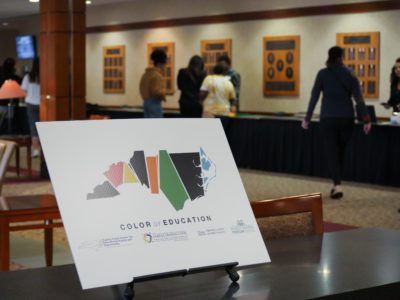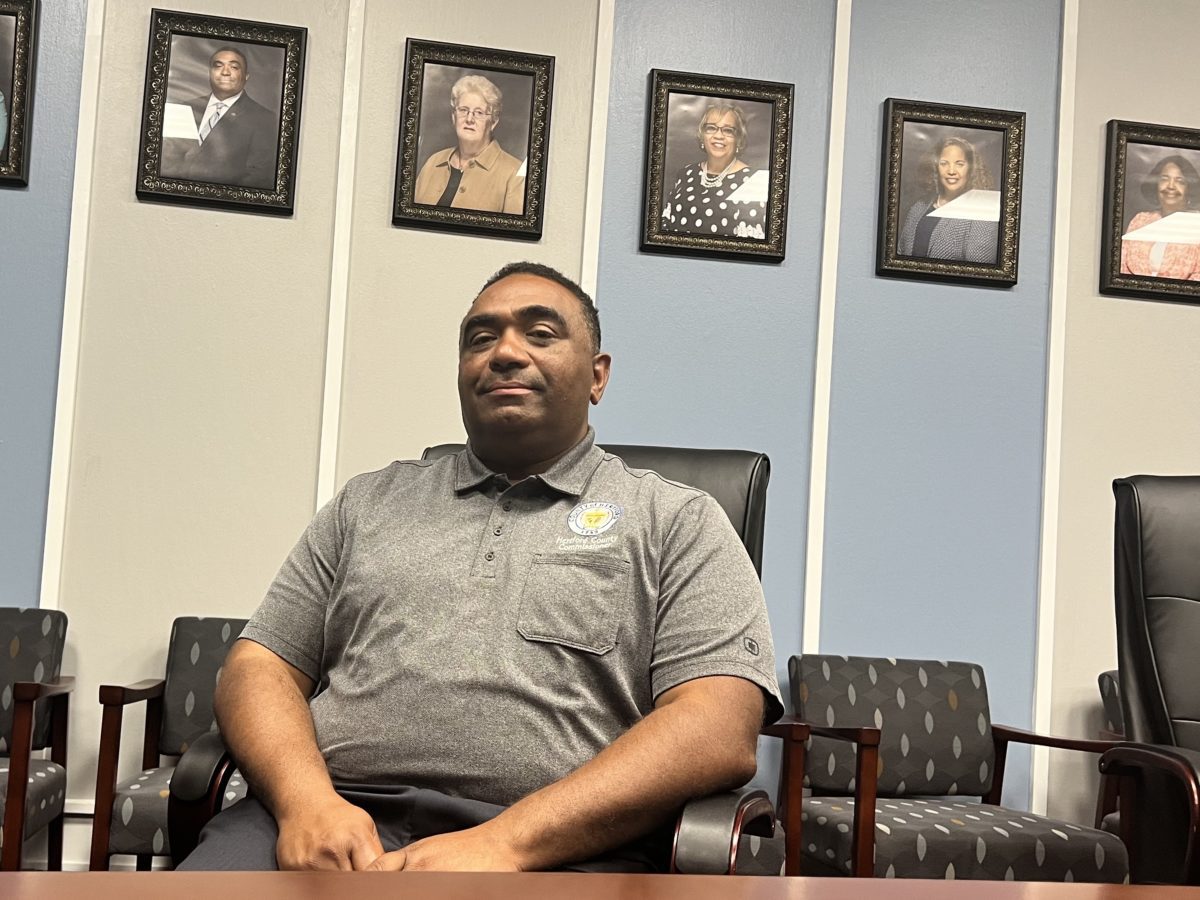
|
|
Andre Lassiter sat in a conference room in Myrtle Beach, fighting back tears.
His whole world, as he reflected in that moment, had seemed tied to the housing authority where he grew up. Still, he had never accepted that he was destined for a life of poverty. And he had never realized that the community college down the street could make such a difference.
It all dawned on him, though, in that conference room. And he was overwhelmed by shock, then sadness, and, finally, gratitude.
“What can I do now to help other people like me that came out of impoverished situations?” Lassiter recalls thinking. “It’s a war against them. Single mom, living in public housing, all of the odds that’s against the Black male. But education still is, and will always be, a game changer. So that’s my fight.”
The working poor
Lassiter didn’t think much about poverty as a kid growing up in the Ahoskie Housing Authority. He watched his mom, a single mother, work long hours at the aluminum tubing factory. He watched her wrap bologna sandwiches in foil and press an iron to them so she could serve him a hot meal.
But he had clothes. He wasn’t hungry. And he didn’t know what “working poor” meant.
“But that’s what she was, she was working poor,” Lassiter said about the woman who would work extra shifts to afford an extravagance on very rare occasions.
According to the U.S. Bureau of Labor Statistics, 6.3 million Americans in 2020 were classified as working poor – meaning they worked at least 27 weeks out of the year but did not earn more than the poverty level. Blacks and Hispanics, according to bureau classification, are about twice as likely to be working poor as whites. Women are more likely than men.
In Ahoskie, where Lassiter grew up, nearly a quarter of the community and one-third of its children live in poverty.
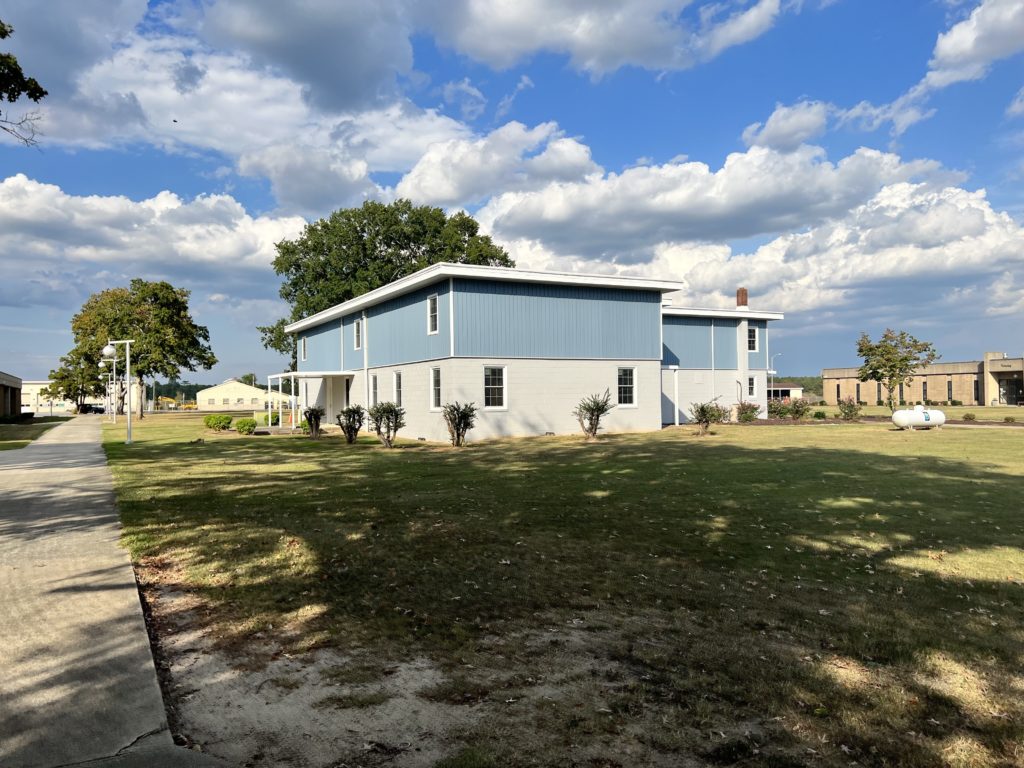
The high cost of survival
Lassiter wanted something more, and he saw education as the pathway to get there. He followed some friends to Norfolk State University after high school, but he ran out of funds after little more than a year.
“I always had a desire to have an education, but my obstacle was money,” he said. “We had no clue what the value of community college was.”
When Lassiter returned home, he went back to the housing authority where he grew up.
“I was struggling – I mean, I was really struggling,” he said. “Poverty was driving me to just go to work, but I had this desire to get an education. So I was at a crossroads of the need to make money to survive versus getting an education.”
Survival won out.
Lassiter joined the maintenance staff at the housing authority. And his ambition now was to become superintendent of that staff. He achieved it at the age of 21.
The value of community college
Those are the two moments — choosing work over education, and then becoming superintendent — that Lassiter thought about when he fought back those tears in Myrtle Beach. That moment at the crossroads, and that moment when he thought he’d achieved his life’s ambition.
Now Lassiter was attending a housing authority conference at the beach, a decade or so removed from that crossroads. A presenter walked over to him and asked him for his zip code. 27910, Lassiter told him.
“Do you know what you just told me?” the presenter asked. Lassiter thought he had merely told him where he was from.
“You told me your odds of escaping poverty without an education,” the presenter said. “For a Black man where you’re from, it’s 10 to 15%.”
Lassiter knew in that moment that he would have spent his life among the 85% to 90% stuck within those odds if he had stopped at that promotion to superintendent.
As fate would have it, though, after Lassiter went to work at the housing authority, a friend told him about Roanoke-Chowan Community College. He could work while he went to class, and the credits were affordable.
Lassiter enrolled.
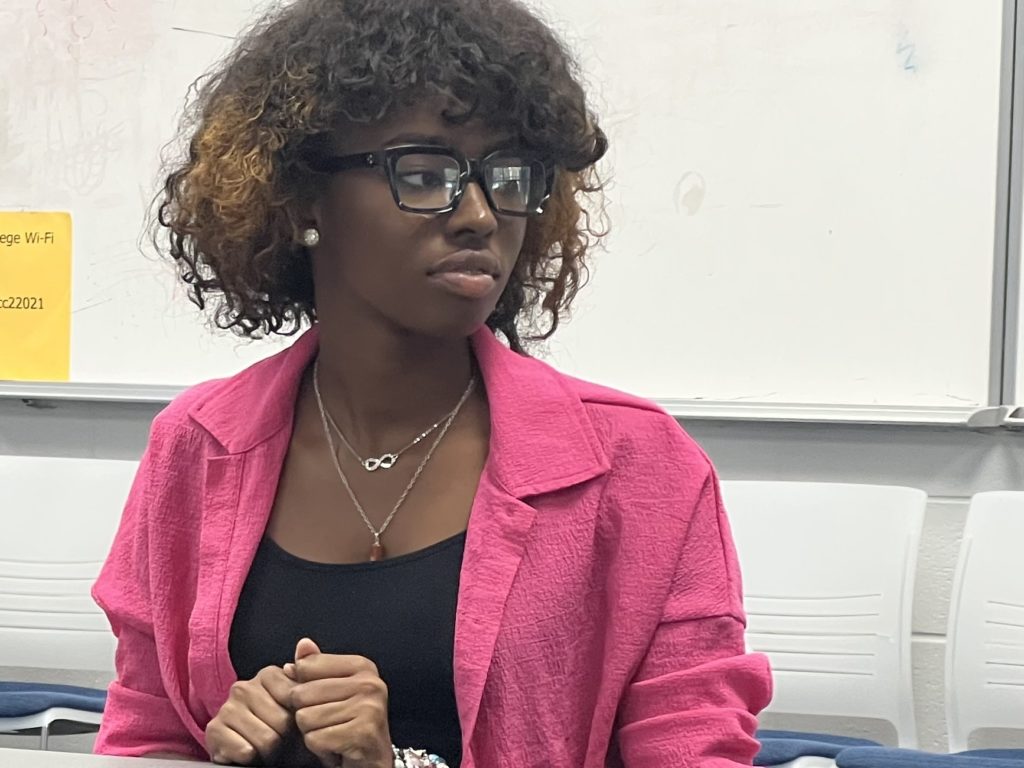
Altering lives — by the thousands
In 1967, the state converted an abandoned prison and established Roanoke-Chowan in Ahoskie. Today, it’s the state’s second-smallest community college by enrollment, serving just over 2,300 students last year. But it pulls from a wide footprint — including the counties of Hertford (where it sits), Northampton, and Bertie.
It serves a region with declining population and few institutions of higher education.
“There’s not a ton of options here,” said Dashya Lassiter, a sophomore at Hertford County Early College High School, which sits on the community college campus. “That’s for everything, for colleges and just stuff around here — there’s just not a lot to do.”
The younger Lassiter, no relation to the elder, said she knows she’s getting one of the best educations that high school kids in the county can receive. She’ll graduate high school with an associate degree from the college.
Roanoke-Chowan offers more than 60 degree and certificate programs and prepares students in business and information technology, public services, health and human services, and manufacturing and industrial technology.
A recent economic impact report found that the community college made a $33 million annual impact on the regional economy — supporting more than 607 jobs, representing one out of every 45 jobs across Bertie, Hertford, and Northampton counties.
The college also has robust college transfer programs of study, setting students up to complete their bachelor’s degree — often at nearby Elizabeth City State, Chowan, or East Carolina. That’s the track Dashya Lassiter is on.
She wants to attend a four-year school. But then, she wants to leave Ahoskie behind.
“There’s nothing here for me,” she said. “This college is like a way out.”
The elder Lassiter understands that pull. It’s what took him across state lines to Norfolk State. He would come to learn, though, that the college right next door to his home was about to change the trajectory of his life.
Altering lives — one at a time
Lassiter found a criminal justice class and signed up. Then he met an instructor who helped alter his life.
“He really was so instrumental in giving me that male mentorship that I really needed,” Lassiter said, “because my mother’s family didn’t know how to give me support to get an education.”
His instructor recognized a passion in Lassiter, as well as a sharp mind. Before graduation, he pulled Lassiter aside.
“You can’t stop now,” the instructor told him.
“He kept pressing me to keep going,” Lassiter said.
When Lassiter graduated with an associate degree in criminal justice, the instructor connected him with an incentive scholarship program that paid for his bachelor’s degree at Elizabeth City State University. Lassiter worked days at the housing authority, skipping lunch so he could get on the road early enough to make evening classes.
Lassiter now owns a security company. He employs 26 people, including his mother — whom he’s lifted from that life of working poor.
“I feel kind of wired up now, because Roanoke-Chowan Community College single-handedly gave me an education that took me out of poverty,” he said.
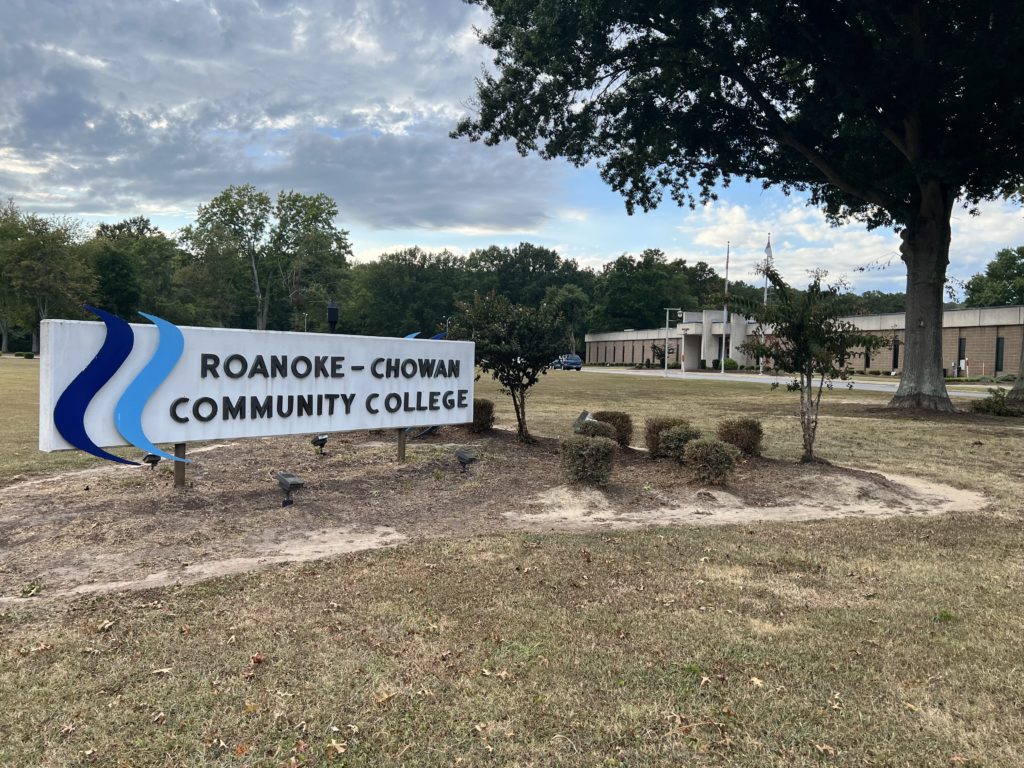
A new role at the housing authority
Lassiter still visits the Ahoskie Housing Authority. In fact, he sits on its board of directors. He sits on another board, too – as a trustee of Roanoke-Chowan Community College. And when he sits in that board’s meetings, he remembers something his grandmother once told him.
“She would say to me, ‘Andre, every door that you have an opportunity to walk in, remember one thing,’” Lassiter recalled. “’When the door closes, nobody else comes in. So when you sit at a table and you’re sitting in a room, you have to represent people that can’t come in.’”
That was the approach on his mind when the board addressed a messy situation at the college the past few years. Before the pandemic, a state audit showed fraud risk at the college. The audit was done while the college was already on probation with the credentialing governing body, the Southern Association of Colleges and Schools Commission on Colleges (SACSCOC).
The state audit and SACSCOC report each chronicled financial issues and hiring practices that violated ethical rules.
Lassiter, who has served on the board for more than a dozen years, said he recognized that the board was not meeting its obligations at the time. A parade of presidents – four of them between 2012 and 2017 – didn’t help.
But he said the hiring of President Murray Williams and the current state of the trustees have set the college up for success. In February, the college received a clean audit from the state.
‘The power to take you out of poverty’
Now, Lassiter said, he’s focused on ways to position the college to further expand opportunities for people in the community. He wants to help those who are stuck as working poor, and he wants to help develop opportunities that will entice young people — like Dashya — to stick around.
It’s hard, he says, because money is a challenge. Funding for community colleges is calculated based on the number of hours their students take – a formula that solves for the number of full-time equivalent (FTE) students.
For a college in a rural area with a decreasing population, boosting FTE is tough. But Lassiter is among those looking for cost-effective and creative ways to reach the community.
“He works to find innovative ways to move people from poverty into sustainable wages,” said Stephanie Benson, executive vice president for workforce development and institutional effectiveness.
One program, called Weld to Work, allows participants to attend a six-week boot camp and gain high-demand, industry-recognized credentials that area employers are seeking.
“Mr. Lassiter went above and beyond the call to recruit and secure participants for the pilot class,” Benson said.
For Lassiter, it’s personal.
“Over the years that I’ve been here, legislators in Raleigh would say Roanoke-Chowan isn’t significant,” he said. “And they are clueless (about) what this place, with all its challenges, does for us.
“If you took away this college from this area, it would kill the region. It would kill it. That’s how much this college means. It represents the opportunity for upward mobility, and it has the power to take you out of poverty.”


